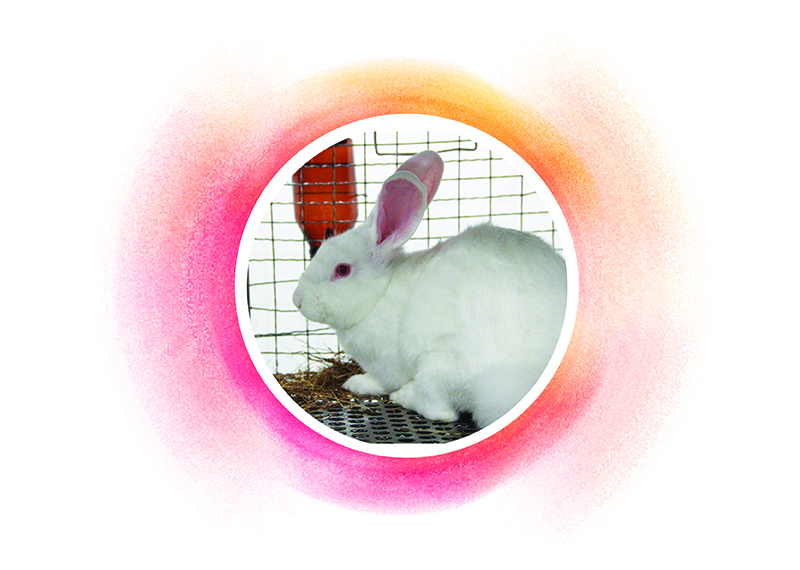

Breeding Systems
Breeding system of NZW rabbit consists of Maximum Avoidance breeding system and group mating system. Maximum Avoidance breeding system is used in foundation stock to maintain the strain and group mating system is used for animal production.
Environment
The rabbit are housed at the environment as below
– Temperature range is controlled at about 25 ± 2 ํC
– Relative humidity range at about 55 – 90%
– Light: dark cycle is adjusted at 12:12 hours
– Noise in rabbit room is less than 85 db.
– Rabbits are housed in well lighted and ventilated room.
Housing
Wire mesh Hanging cages are used for individual and weaning rabbits. Caging rabbit is enhanced in structural strength and adequate size for the animals’ health. The cages are cleaned weekly and as needed. We pay much attention on regular cleaning and sterilizing of rabbit cages .
Bedding
Wood shaving is placed in the tray beneath the hanging cages to absorb urine, feces and leaked water. Breeding females are isolated 3 days before parturition in breeding cages which is attached nesting box.
Feed and water
The rabbit are mono-gastric, hindgut fermenting herbivores. They preferred low-fiber, high-protein, and high carbohydrate diet as nutrients. In nature, they preferred various types of forages, leaves, grasses and weeds. In NLAC breeding facility, the rabbits are given pellet diets produced by Perfect Companion Co. Ltd. which contains 10% protein Moreover, the rabbit also received sterilized hay in ad libitum.
Food consumption increased dramatically with the current ambient temperatures. Food consumption is highly influenced on water consumption.
RO water is used as a source of drinking water. The water is chlorinated in a concentration at 10-12 ppm to make the water free from P.aeruginosa.
Click here for more information of “Inbred Strain / Outbred Stock”